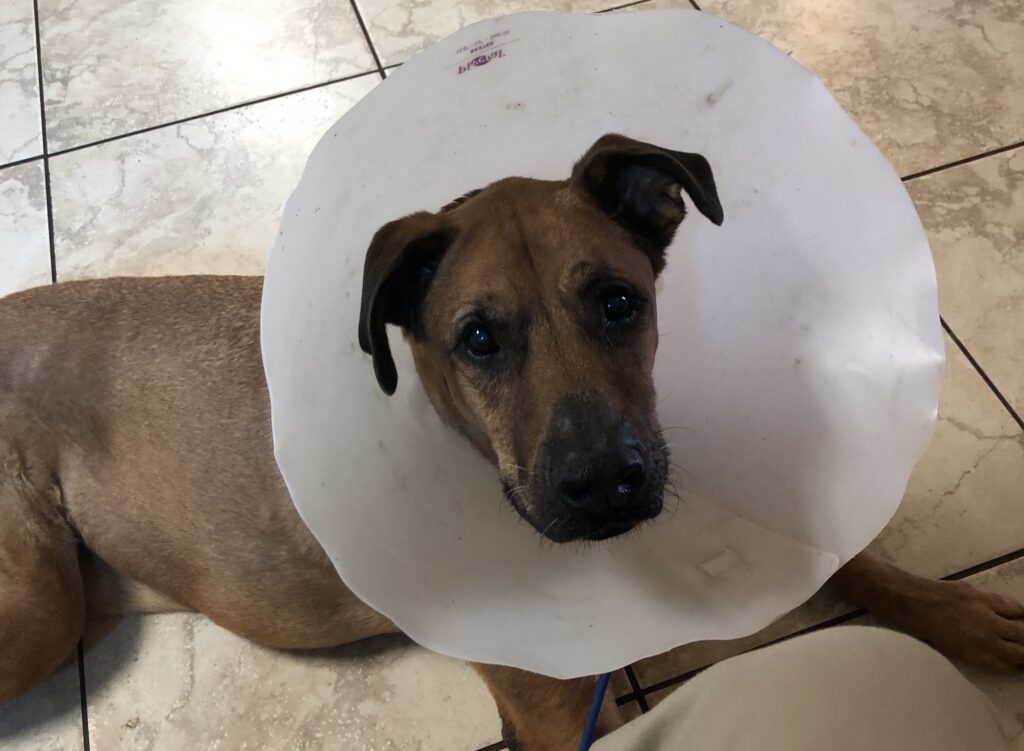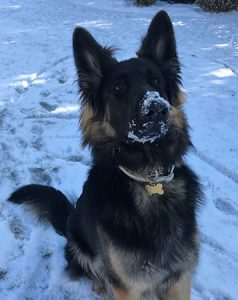Collaboration is Key for Saving Lives
We have had the honor or working with many dedicated animal lovers and their pets, but this case in particular was very special. Timothy and Cooper first came to our good friends at HEAL-Humanity Empathy Animal Love – Foundation with a very serious situation. Cooper was dealing with a burst tumor on his leg, and Timothy, a dedicated and loving dog dad, was running out of options.
HEAL agreed to help Timothy financially, but they were having trouble finding an animal hospital that would see Cooper soon enough. Time was running out, and Cooper’s condition was deteriorating. Our friends at HEAL decided to reach out to us to see if we could help them find a hospital to perform the surgery and cover the remaining costs. Luckily, we were able to find a great hospital with a surgeon willing to act quickly, and we chipped in what was needed to get Cooper the treatment to save his life
The stars aligned, and Cooper’s surgery was a success. He’s bouncing back much quicker than anticipated, and he is expected to make a full recovery. We’ve had the pleasure of speaking with Timothy quite a bit since the surgery and his positivity and gratitude are infectious. We are so happy for the the two of them. We actually just received word today that Cooper is headed home and has the last of his sutchers out! He’s even been “running around the backyard,” according to Timothy.
We are also feeling very encouraged having worked on this case together with HEAL. We have found that collaboration is not so common between non-profits like ourselves and HEAL, but that is a trend that we are happy to go against. With the rising cost of veterinary care, sometimes the only option to save a pet’s life may be to work together. After all, we all have the same goal at the end of the day: Keep families together.
We urge you to please donate to us today. Cases keep coming in, and it’s getting tougher and tougher to find hospitals that can take in the cases that we are trying to help. We are only able to save lives because of donations from people like you. Thank you.





 Old man winter packs a punch of frigid weather risks for pets and antifreeze poisoning is among the worst of them. HEALS wants everyone to know that when a pet ingests antifreeze (ethylene glycol or EG) it’s a medical emergency that can result in acute kidney failure and death.
Old man winter packs a punch of frigid weather risks for pets and antifreeze poisoning is among the worst of them. HEALS wants everyone to know that when a pet ingests antifreeze (ethylene glycol or EG) it’s a medical emergency that can result in acute kidney failure and death. Twelve to 24 hours after a dog or cat has gotten into antifreeze, the initial signs appear to resolve, but underlying internal damage continues. Elevated heart rate, increase breathing effort, and dehydration may start to develop.
Twelve to 24 hours after a dog or cat has gotten into antifreeze, the initial signs appear to resolve, but underlying internal damage continues. Elevated heart rate, increase breathing effort, and dehydration may start to develop.
Recent Comments